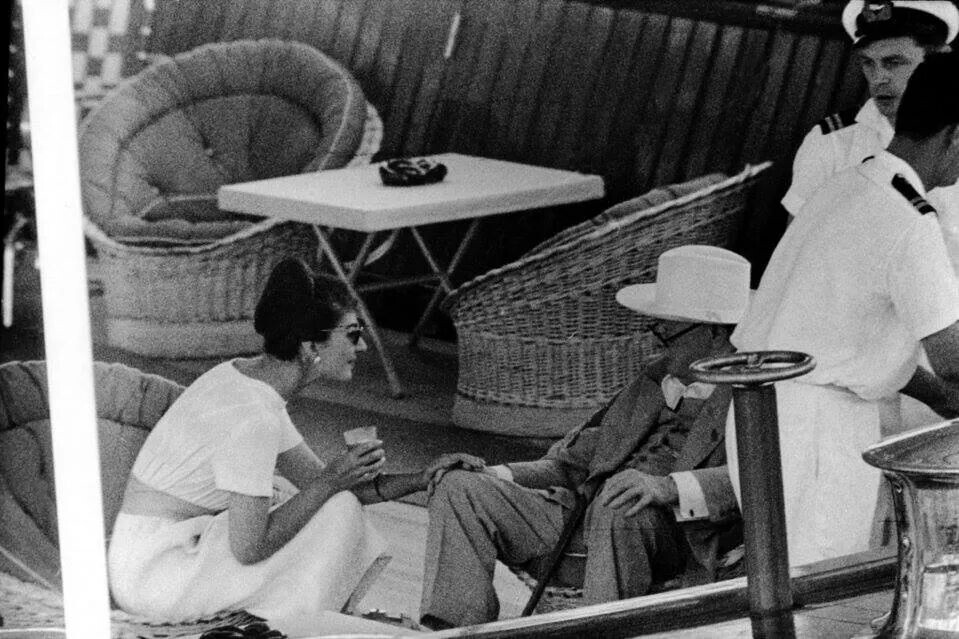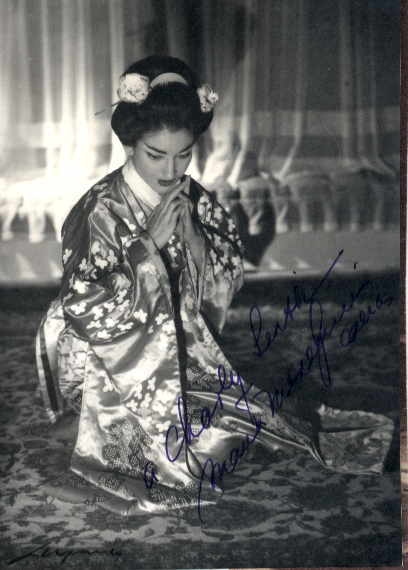
Winston Churchill and Maria Callas, credit Wikipedia
Amor Fati
Madama Butterfly, Japanese tragedy in three acts, Royal Opera 12th September 2022, music composed by Giacomo Puccini, libretto by Giuseppe Giacosa and Luigi Illica, conductor Nicola Luisotti, reviewed by Leslie Jones
In The Origin of the Family, Private Property and the State (1884), Friedrich Engels considers how sexual relationships might best be regulated “after the impending effacement of capitalist production”. He anticipates that women will no longer be obliged to “surrender” to any man “out of any other consideration than that of real love”. Cio-Cio-San (soprano Maria Agresta) is in no such privileged position. After her father killed himself by order of the Mikado, the women of her family had to become geishas to survive. Lieutenant Pinkerton (tenor Joshua Guerrero) is set to marry her “Japanese style for 999 years”. A house and servants are included in the marriage contract, which can be terminated at any time. Indeed, Pinkerton drinks a toast to the ‘real’ American wife he expects to one day have, after a ‘proper’ wedding. But although a cynic and misogynist, he is not without redeeming features.
Reportedly, this revival of Directors Moshe Leiser and Patrice Caurier’s twenty year old production was given the go ahead only on condition that it was made “more authentic in its representation of Japan” (see Oliver Mears, Director of Opera & Antonio Pappano, Music Director of Royal Opera, Official Programme, p 21). This apparently involved some input from Japanese practitioners and academics. As Michael Church remarked in the Independent, 15th June 2022, the revival director was required to find a slant “which doesn’t offend those who regard the opera as an expression of racist stereotyping”. Yet messrs Mears and Pappano, somewhat inconsistently, consider Madama Butterfly “ahead of its time” and “a savage indictment of the evils of imperialism”.
The ultra-minimalist set still works to perfection. The cast are shifted around the stage like automata. And there are premonitions of death, as in Tosca. The love duet Viene la sera, at the end of Act 1, was particularly compelling. Perhaps “unbearably sad” now needs a trigger warning.

Maria Callas as Butterfly, credit CS.Princeton.edu
[Editorial endnote; in an earlier review of Madama Butterfly, we noted that self-deception (Butterfly) and the deception of others (Pinkerton) are pivotal themes therein. So that “…the unexpected arrival of Alastair Campbell…at the stage door entrance in Floral Street was apposite”. But unlike Pinkerton, “…Campbell does not do remorse” – “America forever…”. See ‘Bad Lieutenant’, QR, 30th March 2017]
Dr Leslie Jones is the Editor of Quarterly Review










